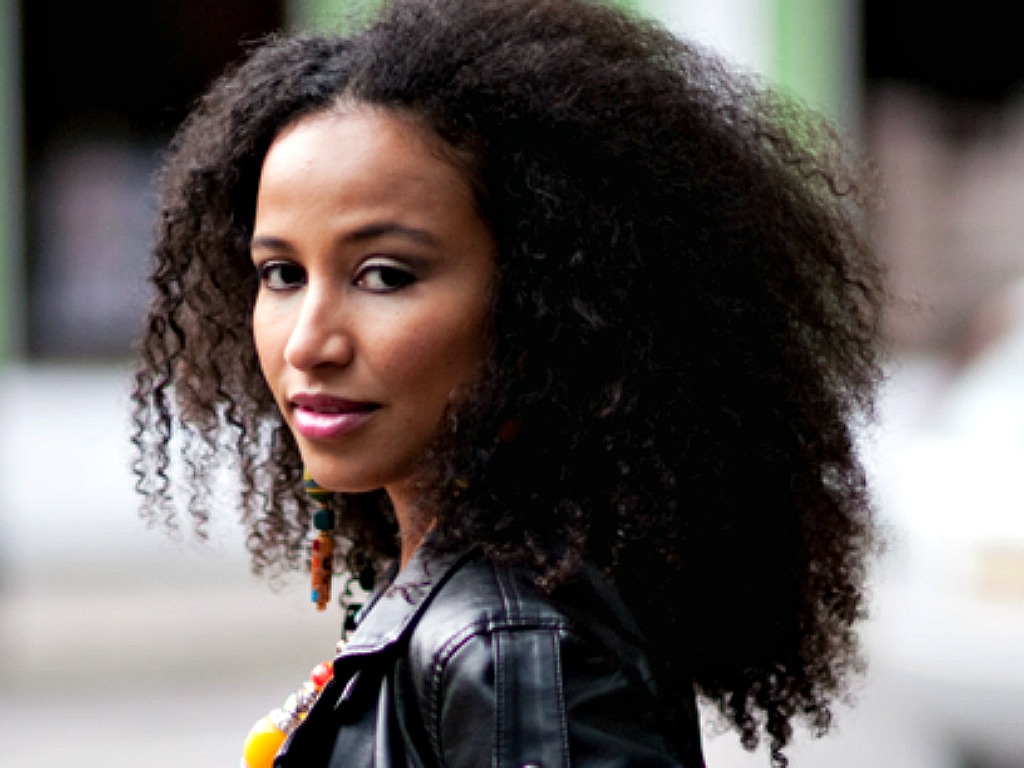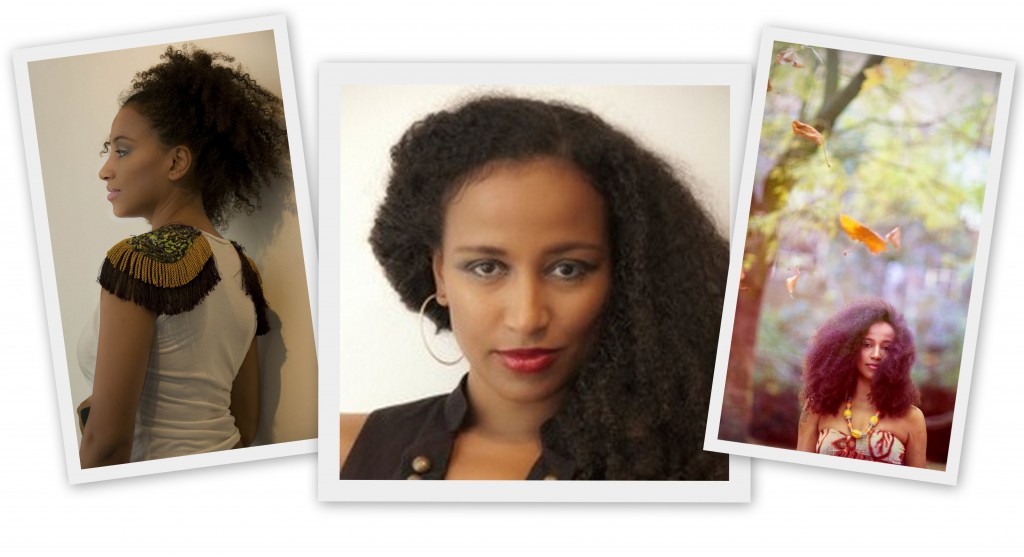18 June 2014
Minna Salami: An Interview
with the Creator of Ms. Afropolitan
Minna Salami is the creator of Ms. Afropolitan, an African feminist blog that explores African concerns from the much overlooked intersections of gender, race, class and a host of other factors as related to African women. Her writing offers a strong and clear voice amid the reactionary roars of racial politics and gendered arguments on digital media. The African Book Review had a conversation with Minna about her blog, the evolving roles of African women across the world and her poetry collection, Cache.
ABR: What inspired you to create Ms. Afropolitan?
MINNA: When I started writing MsAfropolitan, I was driven by a need to contribute, and to some extent introduce, mainstream commentary about African popular culture from a clearly feminist perspective. Blogs about African society were male dominant and the feminist blogs I came across were Eurocentric. Most of the African feminist writing I encountered was either academic or fiction writing. It was brilliant work…but I longed to read commentary about Africa from a feminist angle and commentary about feminism from an African angle. Not finding much, I set up MsAfropolitan. In a sense I was writing what I wanted to read. I realize these things in hindsight…at the time, it was just an obsessive need to write myself into being.
ABR: It’s interesting to read pieces on your blog dealing with everything from hair politics and colorism, to Fanon’s arguments about the psychological decolonization process. Do you think Africans are still undergoing that process? Or (perhaps, a better question) did we ever actually start that process, as much of the standards through which we judge everything from beauty to success, remain Western?
MINNA: I read a quote on Facebook the other day that caused me to pause. It said “Slavery is NOT African history. Slavery interrupted African history.” I think slavery is African history. It’s a history that I find empowering in the sense that it is a testimony to the rebellion, intelligence and resilience of a continent. To quote Maya Angelou, “You may write me down in history / With your bitter, twisted lies / You may trod me in the very dirt / But still, like dust, I’ll rise.” All to say, we actually need to go further back than colonialism to tackle the decolonisation process. We need to unpack the psychological legacy of slavery on modern-day Africa. Where colonialism was largely about recreating the African into the European image: teaching her to speak European languages, worship European gods, behave like a “lady” and so on, the transatlantic slave trade was the segue to colonialism…and the more we incorporate that history into psychosocial analysis of African people today (as Jewish people have rightly done with the holocaust) the more we can heal, build and come to grips with the event of colonialism. But I have to disagree that we judge everything from a western ideal. Africans are some of the most proud people that I know. As we should be!
ABR: Thinking about African feminism, what would you loosely define it to be. Is it a cognizant choice, or subconscious part of daily life? What does it look like as you envision it today, and how would you ideally like it to look in future?
MINNA: African feminism, simply put, is feminism practiced by African women. We can delve into it theoretically, look at African feminist thought its particular strands; STIWANISM, African Womanism etc.,—and we should—but at its core is African women practising feminism, which we inevitably do with a particular texture. Africa is an incredibly tradition-centred continent so many of us find our feminism has to negotiate with the intersection of patriarchy and tradition even more than patriarchy and race. For me, feminism is a part of daily life because patriarchy is a part of daily life. And yes, being a feminist is subconscious, in fact being a feminist and being a woman are synonymous to me; I would not know how to be a woman who is not a feminist. As for the future of the African feminist movement, I see us presently in the calm before the storm stage. There is a rebellious energy brewing, like the spirit of Oya, the orisha who symbolises change and rebirth. African feminists today, and especially those in the continent, are some of the most radical feminists I’ve met.
ABR: Cache tackles some really interesting subjects, especially in the poems that deal with sexuality. The book’s movement from ‘Rape,’ to ‘Gentle Man,’ to ‘Naked Part II’ seems to suggest an exploration of agency, its different textures and subtleties; who controls the narrative of sexuality, and how different people’s choices in the same issue can be perceived differently. Can you talk about that section and what (if any) you wanted to achieve through that arrangement?
MINNA: By extension of the popular but mistaken idea that feminists hate men, there is a less verbalised notion that feminists hate sex with men. And so being a feminist who does not hate men, nor sex with them, is an expression in that section of my book. However, as you hint at, feminist sexual agency in heterosexual relationship is complex because sex is not only a site of pleasure and autonomy but also one of power and political choice. In other words, my sexual feelings toward men are informed by my experiences of sex as a site where both pleasure and abuse can take place. This complexity is an underlying exploration in that section.
ABR: Your poems, ‘Nigeria,’ and ‘Dissonance,’ seem both poignant and biting. What’s your relationship to Nigeria both as a place you grew up in, and as a political construct?
MINNA: Ah, yes, Nigeria is like a lover who doesn’t love themselves and thus cannot really love you either… You care about them deeply, but all you get in return is lost potential. However, unlike a lover whom you can leave, I can’t “leave” Nigeria (and nor do I want to). Hence the sense of ‘dissonance.’
My relationship with Nigeria is an emotionally abusive one that I will never stop returning to.
ABR: What do you want readers of Cache (and of Ms. Afropolitan) to take away from it?
MINNA: In writing Cache, like in writing MsAfropolitan, I found–or tried to find–a home in language. I hope that readers of Cache will (re)kindle a relationship with poetry if they don’t already have one. And with the idea that poetry frees the mind by enabling the reader to feel rather than think….Poetry is marked by both white/western and male dominance, and while I enjoy many forms of poetry I’m especially moved by the less cerebral and cartesian approach to it and by poets whose work touches the spirit, poets like Warsan Shire, Adrienne Rich, Meena Alexander, Tommy Taberman, Wisława Szymborska, Eduardo Galeano, Molara Ogundipe-Leslie, Rita Dove, Jessica Horn, Audre Lorde, lyrical poets like Fiona Apple and Nneka, I could go on… Oh, and I much enjoy Zen and Buddhist Poetry.
++++++++++++++++
Minna Salami is a Nigerian-Finnish writer and the founder of MsAfropolitan, a multiple award-winning blog covering contemporary Africa and Diaspora society and culture from a feminist perspective. Minna is a member of the Duke University Corporate Education Global Learning Resource Network. She is also a contributor to the Guardian Africa Network and a Huffington Post contributor
>via: http://theafricanbookreview.com/2014/06/18/minna-salami/



